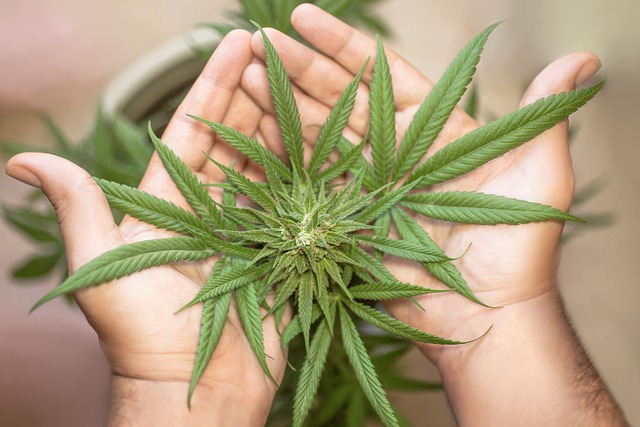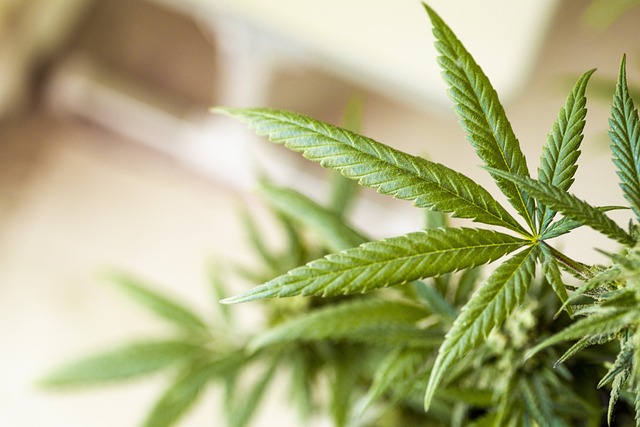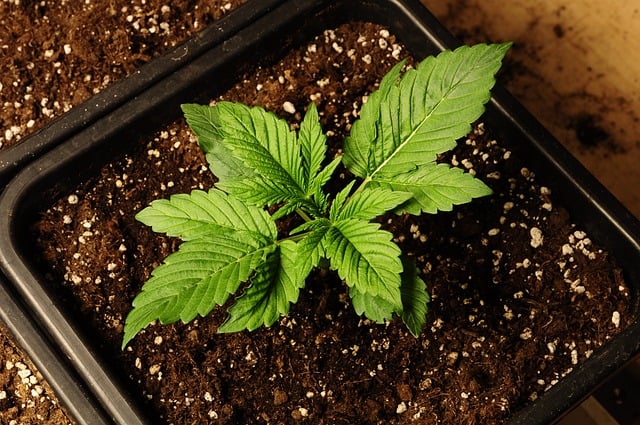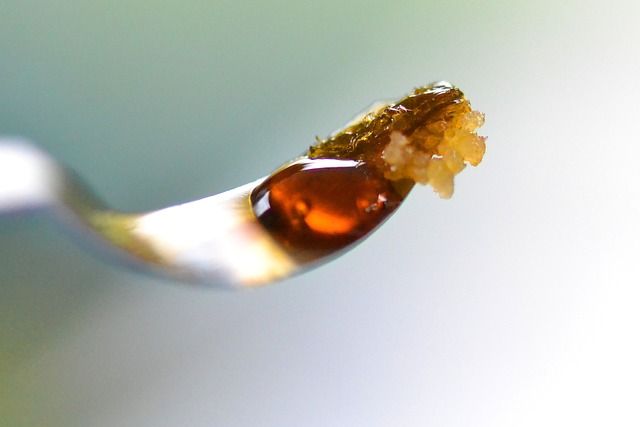The THCA flower extract, a non-psychoactive component of the cannabis plant, is garnering attention for its diverse therapeutic properties. Studies indicate that it may alleviate pain and inflammation, mitigate nausea, exhibit anti-cancer effects, and offer cardiovascular support, all without inducing intoxication. Its anti-inflammatory, analgesic, neuroprotective, antioxidant, and immune-modulating abilities are under investigation for their potential in treating a range of conditions, from arthritis to chronic illnesses. The extract’s engagement with the endocannabinoid system is believed to influence various physiological functions, offering a safe alternative for those seeking health benefits associated with cannabinoids. As research progresses, THCA flower extract’s role in holistic health practices and natural medicine is becoming more recognized, particularly for its anti-inflammatory properties and potential to support cognitive function and overall wellness, without the psychoactive effects of THC.
Discover the multifaceted health and wellness advantages of THCA flower extract, a non-psychoactive compound found in hemp with promising therapeutic properties. This article delves into the chemical composition unique to THCA and its significant implications for human health, including its antioxidant, neuroprotective, anti-inflammatory, and potential roles in pain management and skin care. Explore the influence of THCA flower extract on digestive health, sleep quality, mental clarity, and learn about incorporating it into your daily routine. Addressing safety considerations and legality, we navigate the future research and applications of this natural wellness tool, highlighting its potential benefits for overall well-being. Join us as we unravel the full spectrum of THCA Flower Extraction advantages.
- Unveiling the Potential of THCA Flower Extract: An Overview
- The Chemical Makeup of THCA and Its Significance
- THCA Flower Extract and Its Role in Human Health
- Antioxidant Properties and Their Implications for Wellness
- Neuroprotective Effects of THCA Flower Extract
- Anti-inflammatory Benefits of THCA Flower Extract
Unveiling the Potential of THCA Flower Extract: An Overview

Exploring the potential of THCA flower extract reveals a promising landscape in the realm of natural wellness. Tetrahydrocannabinolic acid (THCA), the raw form of THC found in hemp and cannabis plants, has garnered attention for its array of health-promoting properties. Unlike its psychoactive counterpart, THC, THCA is non-intoxicating, making it a more suitable option for those seeking the therapeutic effects without the mind-altering experiences. Extracts from THCA flowers are rich in this cannabinoid and offer a spectrum of benefits, including anti-inflammatory and neuroprotective properties. Preliminary studies suggest that THCA may contribute to pain relief, reduce nausea and vomiting, and possess anti-cancer properties. Its potential as an anti-oxidant and its role in supporting cardiovascular health further underscore the therapeutic value of THCA flower extract. As research continues to evolve, the scientific community is uncovering more about how this natural compound could be integrated into wellness regimens for a multitude of benefits.
Furthermore, the use of THCA flower extract is versatile and can be incorporated into various consumption methods, from sublingual tinctures to topical applications. This adaptability allows individuals to tailor their use according to their specific health goals or preferences. The interest in cannabinoids like THCA has led to increased scrutiny and research to elucidate their mechanisms of action within the endocannabinoid system, a complex cell-signaling system found in all mammals. As more becomes known about how these compounds interact with our bodies, the potential applications for THCA flower extract are poised to expand, potentially offering novel solutions for a variety of health concerns.
The Chemical Makeup of THCA and Its Significance

Delta-9-tetrahydrocannabinolic acid (THCA) is the non-psychoactive precursor to the well-known compound delta-9-tetrahydrocannabinol (THC), found abundantly in cannabis flowers. THCA is present in raw or uncured cannabis plants and is converted into THC when the plant is exposed to heat, such as during the smoking or vaporizing process. This chemical makeup of THCA has garnered significant attention due to its potential therapeutic properties, which are distinct from those of THC. Research indicates that THCA may offer anti-inflammatory, analgesic, and neuroprotective benefits, making it a subject of interest in various health applications. Studies suggest that THCA interacts with the body’s endocannabinoid system by binding to both CB1 and CB2 receptors, influencing various physiological processes without the psychoactive effects associated with THC. The extracts derived from THCA-rich cannabis flowers are being explored for their potential in treating a range of conditions, including inflammation, pain, nausea, and other symptoms. As the scientific community continues to investigate the myriad benefits of THCA flower extracts, their role in wellness regimens and complementary therapies is becoming increasingly clear. The significance of THCA lies not only in its potential health applications but also in its non-intoxicating nature, offering a safe and effective alternative for those seeking the therapeutic effects of cannabinoids without psychoactive influence.
THCA Flower Extract and Its Role in Human Health

THCA flower extract, derived from hemp cultivars rich in tetrahydrocannabinolic acid (THCA), has garnered attention for its potential health benefits. Unlike its psychoactive counterpart THC, THCA is non-intoxicating and interacts with the body’s endocannabinoid system. This interaction may contribute to a range of therapeutic properties. Preliminary research suggests that THCA flower extract could offer anti-inflammatory effects, which are beneficial for managing conditions like arthritis. Its potent antioxidant capabilities also make it a promising candidate for supporting overall wellness and potentially mitigating oxidative stress, a factor implicated in various chronic diseases. Moreover, the extract may have neuroprotective properties, which could be advantageous for maintaining brain health over time. Users often consume THCA flower extract through various methods, including infusions, capsules, or vaporization, allowing for versatile wellness regimens tailored to individual needs.
Furthermore, the potential benefits of THCA flower extract extend beyond its anti-inflammatory and antioxidant properties. Some studies indicate that it may support the immune system and promote balance within the body’s regulatory mechanisms. Its interaction with CB1 and CB2 receptors could also influence appetite, sleep, and pain sensitivity, offering comprehensive support for individuals seeking natural alternatives to manage these aspects of health. As interest in cannabinoid wellness continues to grow, THCA flower extract benefits are being explored in greater depth, promising a myriad of positive effects on human health when integrated into a balanced lifestyle.
Antioxidant Properties and Their Implications for Wellness

Cannabinol (CBN) and tetrahydrocannabinolic acid (THCA) are two prominent cannabinoids found in the THCA flower, which have garnered attention for their potential health benefits. Among these is the rich array of antioxidant properties that THCA flower extracts possess. Antioxidants are compounds that can protect your body from oxidative stress caused by free radicals, a type of molecular damage that is associated with a range of diseases and aging processes.
The THCA flower extract benefits extend to its role as a potent antioxidant. Studies have indicated that THCA may be more effective than its psychoactive counterpart, THC, in this regard. This is particularly significant because antioxidants like those found in THCA flower extracts can help neutralize harmful free radicals, thereby supporting overall wellness by potentially reducing the risk of chronic diseases and promoting cellular health. The presence of these beneficial compounds in the THCA flower suggests that incorporating such extracts into wellness routines could have a multifaceted impact on health, primarily by mitigating oxidative stress and its negative effects on the body’s systems.
Neuroprotective Effects of THCA Flower Extract

THCA flower extract, derived from the cannabis plant and containing tetrahydrocannabinolic acid (THCA), has garnered attention for its potential neuroprotective effects. Studies suggest that THCA may offer protective benefits to the nervous system due to its interaction with the body’s endocannabinoid system, which plays a key role in regulating neurological functions. This phytocannabinoid is non-psychoactive, meaning it does not produce the high associated with its decarboxylated form, THC. Preliminary research indicates that THCA flower extract may help to shield nerve cells from damage and promote the healing of injured neurons, offering promise for its use in neurodegenerative diseases. Its anti-inflammatory properties are also thought to contribute to these neuroprotective effects by reducing oxidative stress and inflammation in the brain, which are often implicated in various neurological conditions. As a result, THCA flower extract benefits extend to potentially preserving cognitive function and supporting overall brain health, making it a subject of growing interest in the fields of neurology and neuroscience.
Anti-inflammatory Benefits of THCA Flower Extract

THCA flower extract, derived from the raw cannabis plant before it undergoes decarboxylation, possesses a range of potential health benefits, with particular attention to its anti-inflammatory properties. Studies suggest that THCA, or tetrahydrocannabinolic acid, interacts with the body’s endocannabinoid system, offering relief from inflammation without the psychoactive effects associated with its counterpart, THC. This makes it a compelling option for individuals seeking natural alternatives to over-the-counter anti-inflammatory medications. The anti-inflammatory benefits of THCA flower extract are thought to stem from its ability to inhibit certain enzymes and modulate immune responses, potentially aiding in the management of conditions characterized by inflammation, such as arthritis and skin disorders.
Furthermore, the extract is rich in other cannabinoids and terpenes that may enhance its anti-inflammatory effects, creating a synergistic impact on the body’s inflammatory pathways. Users report experiencing relief from pain and discomfort associated with chronic inflammation without the intoxicating side effects typically linked to THC consumption. As research continues to unfold, the therapeutic potential of THCA flower extract in addressing various inflammatory conditions becomes increasingly apparent, offering a promising outlook for natural medicine applications.
In conclusion, the exploration of THCA flower extract benefits reveals a promising compound with multifaceted wellness potential. Its antioxidant properties and anti-inflammatory effects suggest it could play a significant role in supporting human health, while its neuroprotective attributes offer intriguing possibilities for brain health maintenance. The chemical composition of THCA and its extract form present a natural alternative with therapeutic potential, making it an object of growing scientific interest and practical application. For those seeking to enhance their wellness regimen, the benefits of THCA flower extract represent a noteworthy addition, underscoring the importance of this emerging area of research in the realm of health and well-being.
